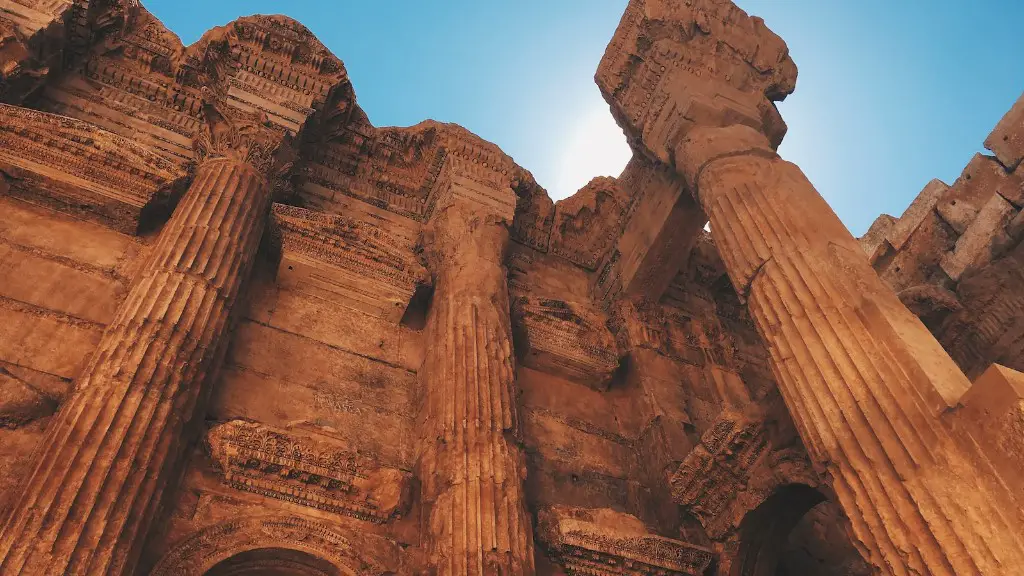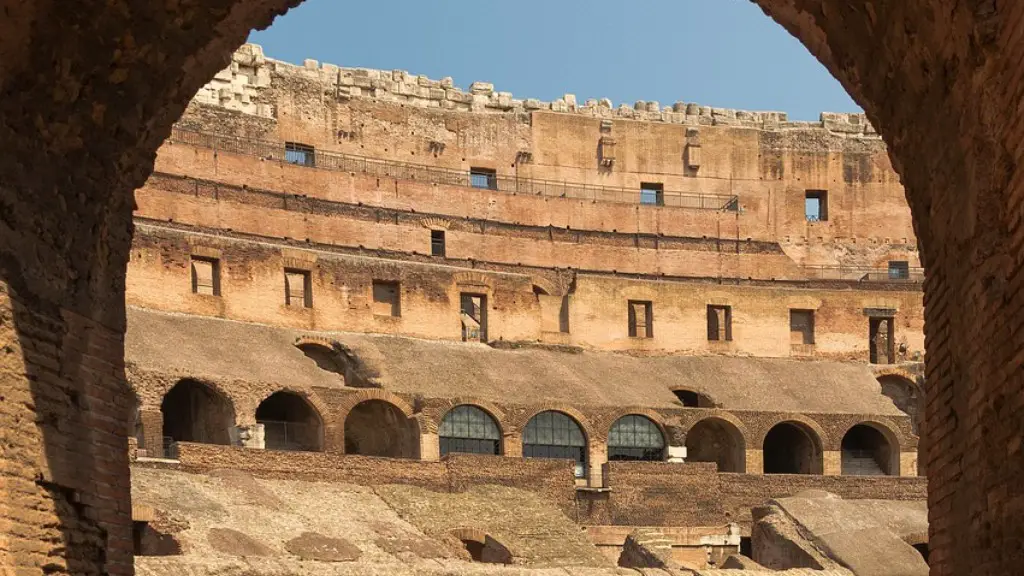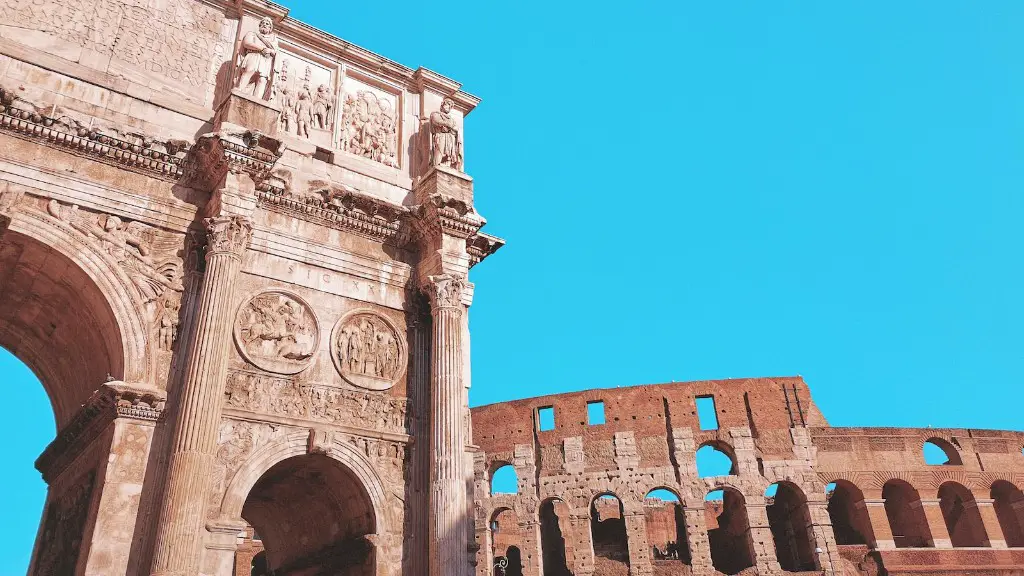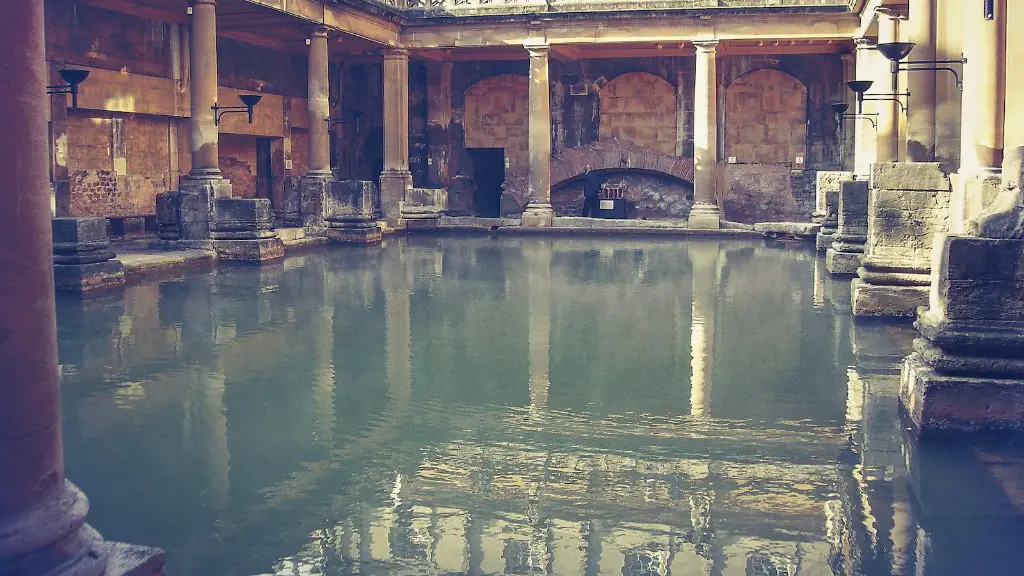Augustus Caesar was a renowned figure in ancient Rome. He was the founder of the Roman Empire, and is widely considered to be one of the greatest leaders in world history. He was born Gaius Octavius on 23 September 63 BC in Rome, to Gaius Octavius and Atia. In his early teenage years, he was adopted by his great-uncle, Julius Caesar, and assumed the name Gaius Julius Caesar Octavianus. Upon Julius Caesar’s death in 44 BC, he served as consul, military commander and de facto ruler of the Roman Republic.
He waged a civil war against Marc Antony and Cleopatra in 31 BC and experienced a string of military successes. After defeating his rivals, he was appointed to several high offices in the Roman government. Among his many achievements were the founding of the Roman Empire, the reorganization of the government, and the construction of several monuments and temples.
Augustus was a shrewd politician and an astute statesman. He put an end to civil wars and set the framework for a golden age of peace and prosperity. He also created various reforms in taxation, currency, and civil law. He also weakened Rome’s dependence on the ruling aristocracy and provided for the people by providing education, healthcare, and infrastructure. With the help of his brilliant administrators, he expanded the empire and made sure it did not become weak and dissipate.
During his reign, Augustus is credited with the successful establishment of Pax Romana throughout the Empire. He was also an active supporter of the arts and a great patron of literature. He is also credited with encouraging public freedoms, while also preventing civil unrest by having strict regulations that applied to Roman citizens.
Augustus also understood the importance of religion during his rule. He believed that religious ritual and cult activity were necessary to maintain the stability of the Roman people, and he played a major role in the establishment of a new imperial cult of the Roman people. He also promoted traditional Roman gods, along with those of the cults of the Egyptian gods Isis and Serapis.
Augustus’ leadership transformed the Roman Empire from a republic to a powerful empire and he is considered one of the most influential figures in world history. His political and administrative reforms changed the course of history and had an immeasurable impact on the development of both the Roman Empire and the European region. He is remembered not only as an able leader and statesman, but also as a great military commander, and visionary.
Political Reforms
One of Augustus’ greatest accomplishments was the reorganization of the Roman political system. He centralised administrative power and reorganized the bureaucracy to ensure law and order. He also created a new, more efficient system of taxation throughout the empire, which stabilized the economy. Augustus also enacted several laws to protect the rights of citizens and to encourage public participation in government, making it one of the most progressive examples of rule by the people in the ancient world.
He also established a standing army, which was critical in aiding and expanding the empire. Augustus was also a supporter of the arts and culture, and created various monuments and temples that still stand today. He also established numerous welfare organisations in Rome, to help the elderly and disadvantaged in Rome.
Augustus was a diplomat and an able negotiator, who made sure the Empire maintained a peaceful balance with other states. He also was able to negotiate favourable commercial treaties with other Mediterranean powers. Augustus’ reforms of the Roman political system are still studied today, and the legacy of his reforms can be felt even today in contemporary political systems.
Military Campaigns
Augustus’ reign was not only defined by political and administrative reforms, but also by his strategic military campaigns. His succession to power had been challenged by legions of enemies, and he conquered several provinces to expand the Roman Empire. Most notably, he secured definitive control over Egypt.
His military leadership set the standard for future Roman commanders and strategists, and his campaigns forged the foundation for Rome’s empire. Augustus himself often led his forces into battle, and his unwavering devotion to Roman military might was credited with the empire’s success. He was also an adept strategist in political warfare, and was able to maintain power in the Senate and in the provinces.
Augustus was adept at using diplomacy and negotiation to solve disputes that threatened to disrupt the stability of Rome and prevent it from expanding its reach. Augustus’ successful campaigning has also been credited with creating the Roman Pax, a period of detailed peace and stability that was unprecedented in the ancient world.
Personality
In addition to his military and political accomplishments, Augustus was well known for his personality. He was a deeply religious man, and believed that god played a fundamental role in his success. He also saw himself as a protector of the Roman people and culture, and he declared himself ‘father of the fatherland’.
Augustus was also known for his kindness and generosity. He was known for providing free medical aid, free grain, and providing free entertainment for the people of Rome. In this way, he was able to secure the love and admiration of his people. He was also keen to be seen as a humble man, often forgoing luxurious items and apparel for simpler clothing.
Augustus was also highly intelligent and adept at finding ways to solve problems. In this way, he was able to conquer his rivals, whilst gaining approval from the Senate. Additionally, Augustus was a great public speaker, with a legendary oratory power that enabled him to inspire and rally his people.
Succession
After a long reign of more than 40 years, Augustus died in 14 AD at the age of 75. His throne was inherited by his stepson, Tiberius, who assumed the title of emperor of Rome. Although some of Augustus’ successors may have lacked the power and influence that he had, they nevertheless acknowledged the importance of his legacy and kept many of his reforms and statues in place.
Augustus was a great leader and an effective ruler. His name ‘Augustus’ means ‘exalted’, and is probably the most enduring example of Roman rule. His successes in politics, law, military management and welfare reforms have helped shape much of the western world as we know it today.
Legacy
Augustus’ legacy lives on in various forms today. His reforms, military campaigns, and diplomatic prowess all left an indelible mark on the history of the world. Many of his statutes, temples, and monuments still stand in modern day Rome, a testament to his influence. Augustus is remembered not as a tyrant, but as a shrewd, political genius, and as a protective and caring leader.
The legacy of Augustus is also evident in the global admiration of Roman culture and architecture. Many of his successors in the Roman Senate took up his cause, and Roman influence has spread across Europe and beyond. Augustus’ legacy of peace and stability is something that continues to resonate with people in modern day society.
Cult of worship
Augustus’ reign left a lasting impression on the Roman people, not only for his dedication to stability and peace, but also for his role in establishing the cult of worship. Augustus was declared a deity upon his death, and shrines and temples were erected in his honor. This was an unprecedented move in Roman politics, and it had a profound spiritual and political impact on the Roman people– it created a sense of collective faith and loyalty, which enabled the Empire to maintain stability despite immense internal and external pressures.
This cult of worship was to have a lasting impact on the Roman Empire, becoming the foundation for the idea of the Emperor as a god-like figure. Augustus’ religious influence can still be seen today in several forms. To this day, people visit his temples and pay their homage to the deity Augustus.
Conclusion
Augustus Caesar was one of the most influential figures in Roman history. His military conquests, political reforms, and religious reforms were all crucial in shaping the course of the Roman Empire and its legacy. His commitment to peace, stability, and prosperity for the Roman people was unparalleled and his legacy stands the test of time. Augustus’ vision of a peaceful and prosperous Roman Empire is something that modern generations still admire today.





